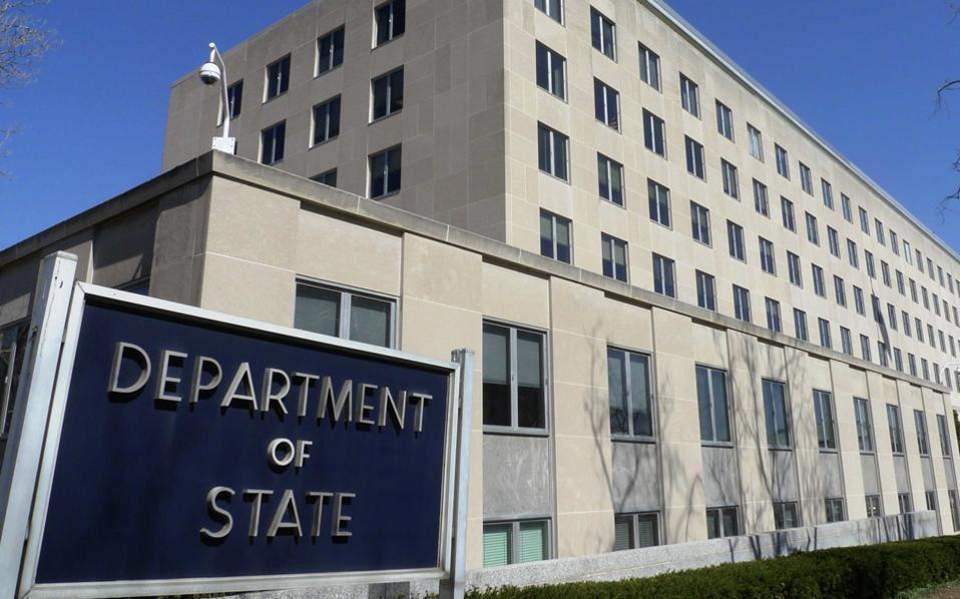State Department: Greece was ‘cooperative’ in counterterrorism efforts last year

The Greek government remained a “cooperative counterterrorism partner” of the United States in 2018 and improved its tools and information exchange to vet undocumented migrants who continue to arrive in significant numbers, the State Department said for the country in its annual report on terrorism.
Among the developments evaluated as positive, the State Department mentions the legislation passed to permit the collection and analysis of passenger name record (PNR) data in implementation of European law and international best practices.
It also noted that there were "no major terrorist incidents" in the country last year and that the US and Greek forces participated in a large-scale joint counterterrorism training exercise.
The report hails the work of Greek judges and prosecutors, saying they are "professional, experienced, and well-equipped to confront domestic terrorism."
However, "Greece is less experienced in the prosecution of international terrorism. Greece has not implemented all aspects of UNSCR 2396 that could help strengthen the legal framework to prosecute foreign terrorist fighters (FTFs)."
The State Department mentions small-scale attacks by domestic groups, such as the bomb that exploded outside the building housing private television station Skai and Kathimerini newspaper, the small explosive device that detonated outside an Athens church and small-scale attacks conducted primarily by domestic anarchists.
It also notes that Greek officials granted convicted November 17 terrorist Dimitris Koufontinas five furloughs from prison in 2018, despite objections from the US government and others.
The report cites the “porous nature” of Greece’s borders which “remained a concern,” saying migrants continued to arrive in Greece, though in much lower numbers that in 2015.
It also describes Greece’s national identification card as “extremely vulnerable to alteration and photo substitution,” adding it has not incorporated security features, such as a digitized photo and biometrics.
“The Greek government has committed to address this vulnerability through the introduction of a biometric national identification card in the near future.”
Concerning countering the financing of terrorism, the Hellenic Anti-Money Laundering and Anti-Terrorist Financing Commission (HAMLC) inspected more than 2,000 suspicious transactions in 2018 "but did not report evidence of terrorist financing in Greece."
The country is currently undergoing its fourth mutual evaluation review by the Financial Action Task Force.





